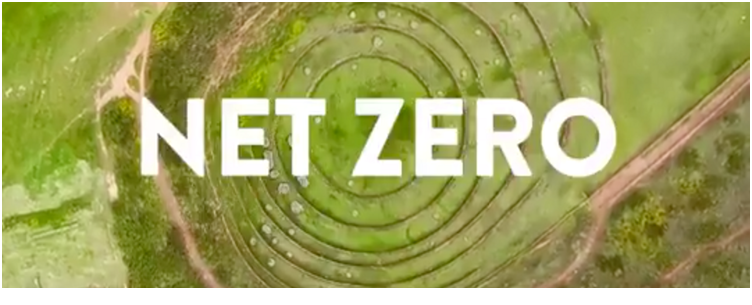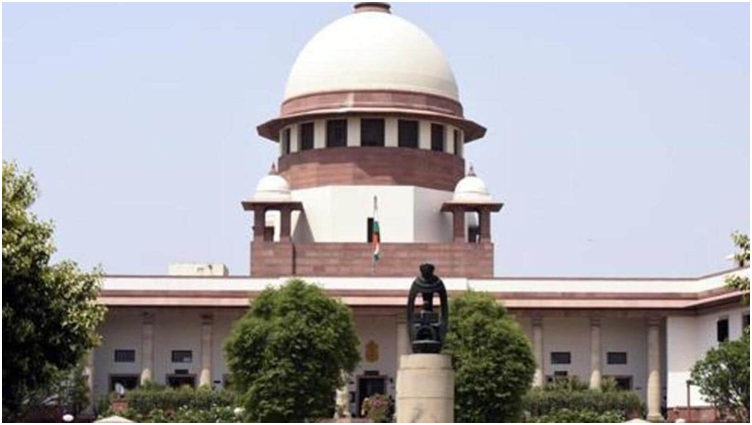Autonomy oils the wheels of higher education excellence (GS Paper 2, Education)

Context:
- None of India’s institutions of higher education appears in the list of top 100 universities of the world.
(selffa.com)
Key to excellence:
- Autonomy is regarded as a necessary and sufficient condition to attain excellence. The best universities in the worldallow a fairly high degree of autonomy to institutions under their jurisdiction.
- Their colleges and schools work as a ‘university within the university’, and the top leadership of the university has no qualms about this.
World rankings and India:
- The 2023 edition of the QS world university ranking reckons that three of India’s higher educational institutions amongst the top 200 of the world. Another three are counted among the top 300 whereas two more in the top 400.
- The Times Higher Education (THE) ranking places only one Indian institution among the top 400 of the world. It is the same with the Academic Ranking of World Universities (ARWU).
- Barring one of the most eminent public-funded deemed universities of the country, all the rest are Institutions of National Importance (INIs); the Indian Institutes of Technology (IITs), to be specific.
- They are not only better funded but also generally self-governed, enjoying a greater degree of autonomy as they fall outside the regulatory purview of the University Grants Commission (UGC) and the All India Council for Technical Education (AICTE).
- In contrast, the best-ranked university in the country falls in the rank brackets of 521-30 by the QS, in the 801-1000th bracket by THE, and in the 601-700th bracket by the ARWU.
Fully regulated:
- Funded through the University Grants Commission (UGC), universities are all subject to a very strict regulatory regime.
- Abiding by UGC regulations and AICTE guidelines, encompasses almost all aspects of their functioning be it faculty recruitment, student admission and the award of degrees. In many cases, they are micro-managed by the regulatory authorities.
- Therefore, most of them have become so comfortable with the practice that they rarely assert their autonomy. Central universities in the country are also ranked on the basis of their ‘obedience’ to regulatory compliances.
- Even in the academic domain, many of them are comfortable in publicly stating that they have adopted the model curricula, pedagogy and syllabi prescribed by the regulatory bodies, even though the same may have been only indicative.
Level of Autonomy in EU:
- The best universities in the world are continuously sensitised about the importance of their autonomy and are trained and enabled to make their own decisions.
- The European University Association (EUA), for example, prescribes a ‘university autonomy tool’ that lets each member university compare its level of autonomy vis-à-vis the other European higher education systems across all member countries.
- By focusing on four autonomy areas (organisational, financial, staffing, and academic) the EUA computes composite scores and ranks all the countries in Europe.
National Education Policy in India:
- A large number of commissions and committees, including the national policies on education (including the National Education Policy 2020), have highlighted the need for higher education autonomy.
- The new education policy seeks to completely overhaul the higher education system, and to attain this objective, repeatedly emphasises the need for institutional autonomy.
- The NEP regards academic and administrative autonomy essential for making higher education multi-disciplinary, and that teacher and institutional autonomy are a sine qua non in promoting creativity and innovation.
- The policy considers a lack of autonomy as one of the major problems of higher education and promises to ensure faculty and institutional autonomy through a highly independent and empowered board of management which would be vested with academic and administrative autonomy.
- It argues for a ‘light but tight’ regulatory framework and insists that the new regulatory regime would foster a culture of empowerment.
Concerns:
- The selective execution of the policy based on a convenient interpretation of the text is what is pushing higher education in the opposite direction.
- Universities in India have been losing their autonomy. In the two years since the approval, announcement, and gradual implementation of the NEP, universities in India today are far less autonomous than earlier.
- Higher learning centres in ancient India enjoyed no less academic, administrative and financial autonomy than the most autonomous universities in the world today. Forcing higher educational institutions to follow uniform standardised rules and regulations run counter to what the NEP provides for.
Way Forward:
- Micromanagement of student admission, faculty recruitment, course contents, programme delivery and administration are a surefire recipe to take higher education farther away from excellence.
Net-zero Greenwashing
(GS Paper 3, Environment)
Why in news?
- At the ongoing COP27 conference, Secretary-General of the United Nations (U.N.), said, “We must have zero tolerance for net-zero greenwashing.”
- He made the remarks during the launch of a report, titled ‘Integrity Matters: Net Zero Commitments by Businesses, Financial Institutions, Cities and Regions’, by the UN’s High-Level Expert Group, instituted in March 2022.

(commondream.org)
What is ‘greenwashing’?
How greenwashing is done?
- Although several companies, cities, states and regions have committed to reaching net-zero, in the absence of regulation, a lot of these pledges are not aligned with the science to achieving the same and do not have enough detail to be credible, the report notes.
- Additionally, the inconsistent use of terms ‘net-zero’, ‘net-zero aligned’, ‘eco-friendly’, ‘green’ and ‘ecological’ among others are not accompanied with satisfactory evidence to substantiate their claims.
- In April, the U.S. Federal Trade Commission penalised retailers Kohl and Walmart $5.5 million for misleading customers about their home furnishing products being made of bamboo.
- In reality, they were made of rayon, a fibre made from cellulose whose manufacturing entails the use of harmful chemicals such as sodium hydroxide that are hazardous to the environment.
Why does greenwashing happen?
- It is done primarily for a company to either present itself as an ‘environment-friendly’ entity or for profit maximisation.
- The latter could be achieved by either introducing a product, catering to the inherent demand for environment-friendly products, or, in certain instances, using the larger idea as a premise to cut down on certain operational logistics and providing consumer essentials.
- If greenwash premised upon low-quality net zero pledges is not addressed, it will undermine the efforts of genuine leaders, creating both confusion, cynicism and a failure to deliver urgent climate action. It is thus necessary to establish a level-playing field and measures where actions correspond with stated ambitions.
What does it have to do with the financial sector?
- The sustainable investing has become increasingly popular among millennials and impact investors concerned with ‘ethical investing’.
- Thus, if the financial sector is to respond effectively to the demand for products that endeavour to introduce positive changes into the economy, it is imperative that ‘greenwashing’ is averted, and that customers are accorded the right information and standards.
- The financial services providers expect increased scrutiny of a company’s Environmental, Social and Governance (ESG) credentials from regulators, shareholders, customers as well as other stakeholders.
- In May 2022, market regulator Securities and Exchange Board of India (SEBI) constituted an advisory committee to look into all ESG-related matters.
- Among other things, the committee endeavours to institute norms for continuous enhancement of disclosures specific to ESG Schemes of Mutual Funds, with a particular focus on mitigating risks pertaining to mis-selling and ‘greenwashing’.
What are the broader expectations from the financial sector?
- Broadly, financial institutions are expected to fund the transition towards renewable energy and discourage investments in further harnessing of conventional energy sources as coal, oil and gas.
- The Expert Committee recommends that financial institutions immediately discontinue all lending, underwriting and investments in companies wanting to strengthen or expand their coal-related infrastructure such as power plants and mines.
- As for oil and gas, it recommends the discontinuation of all investments that would involve exploration of new oil and gas fields, expansion of existing reserves and further production.
- Instead, companies should facilitate increased investment in renewable energy and institutions that are aligned to facilitate net zero emissions by 2050.
What are the recommendations to combat ‘greenwashing’ in the non-financial sector?
- The committee states that non-state actors cannot claim to be net-zero while they continue to build or invest in new fossil fuel supply. As per the report, coal, oil and gas account for 75% of global greenhouse gas emissions, thus, net zero pledges are entirely incompatible with continued investment in fossil fuels.
- It states, firstly, that companies must work towards reducing emissions across their entire value chain and not limit the endeavour to only one part of the chain.
- Secondly, the companies must not invest, through any means, in harnessing fossil fuels or engage in deforestation and other environmentally destructive activities.
- In addition to this, companies cannot compensate for this investment by means of cheap credits, that “often lack integrity”. For perspective, carbon credits work as a permit allowing the holder to emit a stipulated amount of carbon dioxide or other greenhouse gases.
- Further, all state and non-state actors must ensure a ‘just transition’ such that livelihoods are not affected.
- The committee also recommends a transition from voluntary disclosures (pertaining to net emissions) to regulatory norms. Verification and enforcement in a voluntary space can be particularly challenging.
- To this effect, a regulatory mechanism would ensure that non-state actors also put forth their net-zero commitments in case they have not. This, in turn, would also induce competitiveness in the space made possible by standardised norms and regulations.
SC orders premature release of all 6 convicts in Rajiv Gandhi assassination case
(GS Paper 2, Judiciary)
Why in news?
- Recently, the Supreme Court ordered release of all six convicts in the Rajiv Gandhi assassination case.

(Hindustantimes.com)
Details:
- With this order, the top court released Nalini Srihar, Jaykumar, R P Ravichandran, Robert Pias, Suthendraraja and Sriharan.
- Earlier, two convicts; Nalini Srihar and R P Ravichandran serving life sentence in the Rajiv Gandhi assassination case, moved the apex court seeking premature release.
- A Bench of Justices said the top court’s judgement in the case of A G Perarivalan, one of the convicts in the Rajiv Gandhi assassination case, is applicable in their matter.
Judgement applied by SC in premature release of convicts:
- The Supreme Court has applied its 18 May, 2022, judgment of releasing A G Perarivalan to the remaining convicts serving life sentence after noting that the criteria laid down for Perarivalan was applicable in the case of the remaining convicts.
- The Tamil Nadu government has recommended the release of all convicts, which has not been acted upon by the Governor.
- The convicts have spent more than three decades in prison and that their conduct in the prison was “satisfactory”.
SC invoked special powers to release Perarivalan:
Rajiv Gandhi assassination case:
- Former Prime Minister Rajiv Gandhi was assassinated on the night of 21 May, 1991, at Sriperumbudur in Tamil Nadu by a woman suicide bomber, identified as Dhanu, at an election rally.
- As many as 25 people, including the appellants, were sentenced to death by the TADA Court in the Rajiv Gandhi assassination case.
- When the matter was brought up in the Supreme Court, a Bench headed by Justice K T Thomas acquitted 19 convicts, but upheld the death sentences of four of them(Perivalan, Sriharan, Santhan and Nalini). Three others were sentenced to undergo life imprisonment.
- In 2000, Nalini’s death sentence was commuted to life imprisonment by the Tamil Nadu government.
- The Supreme Court, in 2014, commuted the death sentence of Perarivalan, Sriharan and Santhan to life imprisonment.
- In 2018, the AIADMK Cabinet recommended the release of the seven convicts, but the Governor refused to authorise this remission.
What’s next?
- All six convicts in the Rajiv Gandhi assassination case will be released on Saturday, November 12, 2022.
- Of the six convicts, prison officials said Nalini and Ravichandran are Indian citizens, whereas Santhan, Murugan, Robert Payas and Jayakumar are Sri Lankan nationals.




